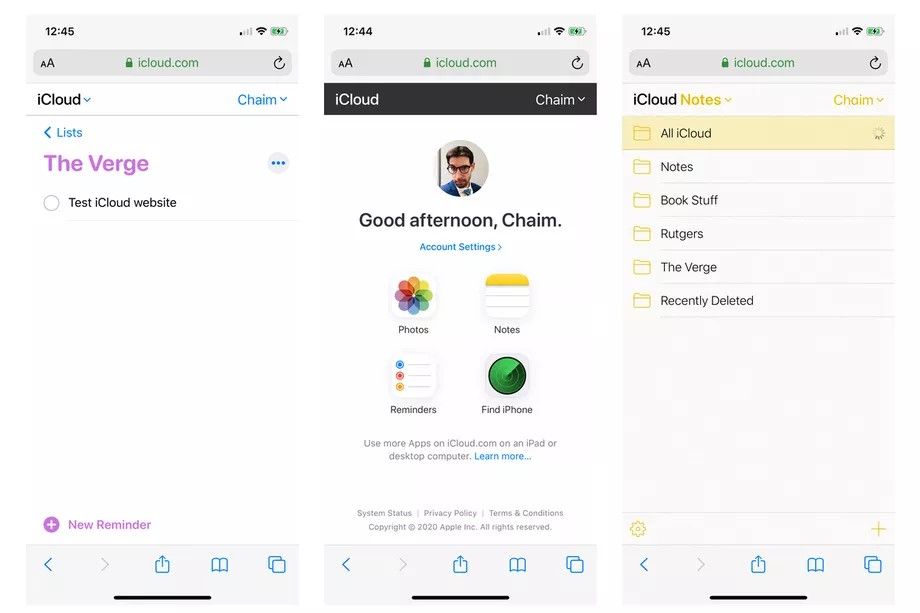By and large, Apple's ecosystem is a locked ecosystem, leading to the famous "walled garden" expression. However, many users do use multiple ecosystems interchangeably. They may have an Android phone and an iPad, for example. Google's services can be accessed through apps on both Android and iOS as well as through well-designed mobile websites. On the other hand, Apple is lagging behind here. Out of all its services, the company offers only the Apple Music app for Android, while vital apps such as iCloud are not available. Google Drive can be accessed on any Internet-connected device, and it's shocking to believe that iCloud didn't have a mobile website up until now. It did have a desktop site available, which could be accessed by requesting the desktop version of the non-existent mobile site. However, like all desktop sites, it was cumbersome to use on mobile. This means that Android users didn't have an easy way of accessing the iCloud account data on their Android phone. Apple has finally fixed this issue by developing a proper mobile site of iCloud.com, which works on both iOS and Android.
The development of iCloud's mobile website means that iOS and Android users can access Apple services such as Notes, Photos, Reminders, and Find My iPhone from their phone's web browser. The UI of the site looks similar to the iCloud mobile app on iOS. This makes it much easier to use on a smartphone as compared to using a desktop site with small touch targets. For Android users who use Apple devices such as iPads or secondary iPhones for work, the improvement will be particularly welcome. Even iPhone users will benefit from this as the Find My iPhone service will now work on an Android phone.
The new UI is live on iCloud.com, but it's limited to the aforementioned four Apple services. Other iCloud features such as Contacts, Calendar, and iWork apps aren't available yet. With iCloud, Apple proved to be shockingly late to the mobile website/web app business, as Google is so far ahead in offering services across ecosystems. Still, it's better late than never.
Via: The Verge


